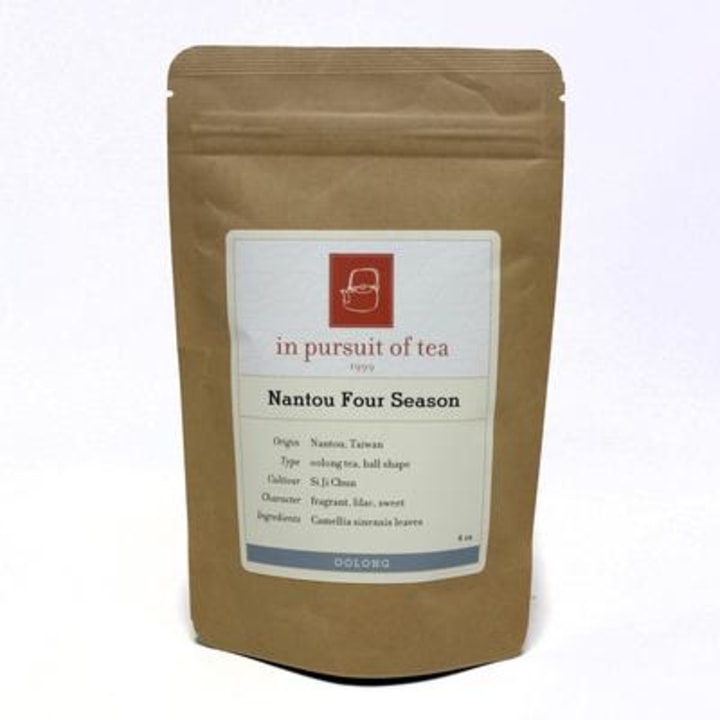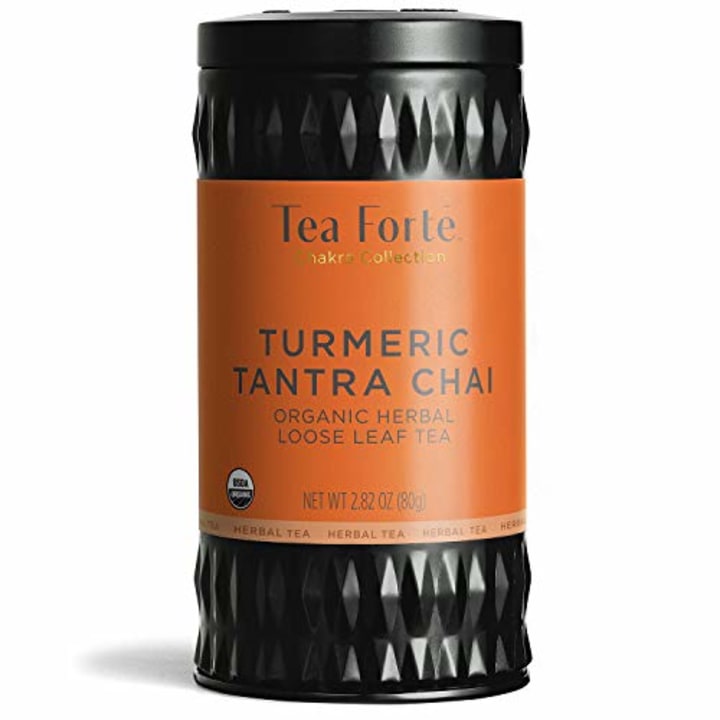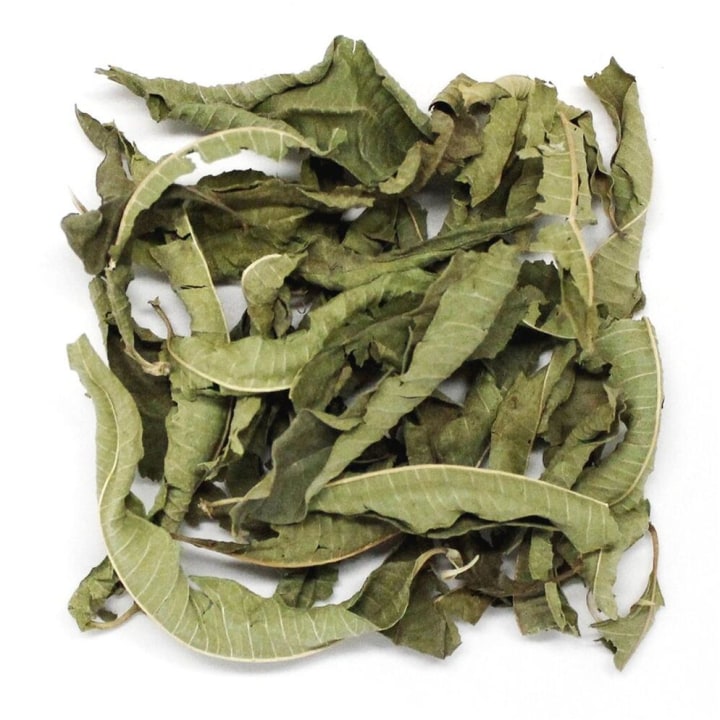6best teas for mental and physical health

From earthy matcha green tea to mild oolong, here are some of the best teas for your health
Our editors independently selected these items because we think you will enjoy them and might like them at these prices. If you purchase something through our links, we may earn a commission. Pricing and availability are accurate as of publish time. Learn more about Shop TODAY.
For most of my life, I’ve considered tea a bland beverage that leaves something to be desired. All of that changed when I moved to Germany, the underrated mecca for tea aficionados. Here, tea shops abound, you can find every herb out there in tea form, and tea is even prescribed by medical doctors and found in pharmacies. It’s no surprise that soon after moving here, I found myself diving deep into the world of underrated oolongs, fruity black tea varietals and decaffeinated botanicals I still struggle to pronounce.
During the last year of quarantine, tea has taken on an even bigger role in my life. I’ve turned to it on a daily basis to break up my day and give me the perfect amount of focus to get through my work day. Noticing positive changes in my life recently moved me to learn more about all the potential health benefits that tea could offer.
For the most up-to-date intel, I spoke to three tea educators about everything from the most relaxing, “feel-good” teas to the mental health benefits of drinking tea. While these aren’t definitive conclusions, the experts and studies below can give you an idea of some of the potential health benefits of tea.
What are the health benefits of tea
Studies have shown many potential mental health and physical health benefits of tea. It’s true that none of the research can prove causality, but also, none of the studies have shown tea to be harmful (at least not yet), and they are numerous enough that many experts agree the benefits are worth continuing to explore.
You can’t talk about the health benefits of tea without mentioning L-theanine, an amino acid found in tea and some mushrooms. (A 2016 study published in “Pharmacognosy Magazine” tested nearly 40 commercial teas and found L-theanine in all of them, minus pu-erh tea.) All teas can be “good” for you, but teas that contain this amino acid are especially beneficial because they have been shown to keep you calm and de-stress you, all while helping you concentrate. While more research needs to be done to definitively back up these claims, preliminary studies show this to be true: One smaller 2007 study published in “Biological Psychology,” for instance, found that subjects who drank theanine-rich matcha showed lower anxiety levels than those who were given a placebo.
Beyond L-theanine, tea continues to be researched as a rich source of antioxidants called flavonoids, mostly found in green and black tea. Research has found that these flavonoids might reduce the risk of cardiovascular disease and stroke and could be related to cardiovascular mortality risk. In one meta-analysis published in “Advances in Nutrition,” just a 1-cup increase in daily tea consumption was associated with a 2 percent decrease in any cardiovascular event. However, more research needs to be done to demonstrate any proven benefits.
For caffeinated tea drinkers, there are even more benefits to be found in tea. Caffeine has often been cited as a driver of physical health benefits, including a lowered risk for type 2 diabetes, cardiovascular disease and colon cancer, though more research needs to be done to prove any definitive links. There are also some potential mental health benefits: In a study of more than 50,000 women, those who drank at least four cups of caffeinated coffee a day saw a 20 percent reduced risk of depression compared to those who drank almost no coffee.

The best teas for mental health
According to Jane Pettigrew, co-founder and director of studies for the UK Tea Academy, teas high in L-theanine have a “brothy, umami” flavor. Gyokuro tea, for example, is one of the highest quality teas you can buy from Japan and it has this savory-sweet character.
Some — but not all — senchas (a type of green tea high in L-theanine) are partially shaded to increase their production of L-theanine. Ayame Kabuse is one such sencha variety that’ll deliver refreshing, umami flavors reminiscent of Gyokuro.
For a more accessible tea high in L-theanine, look to matcha, the aforementioned green tea with a high concentration of the amino acid. Produced by grinding the whole shaded green tea leaf down into a powder form and then whisking that powder in a bowl with hot water, matcha has recently become a more popular tea flavor.
Pettigrew admitted that the taste is “intense,” though, and that adding it to a latte, or blending half a teaspoon of it with almond or oat milk, a banana and a bit of honey is a perfectly acceptable way to tone the flavor down. To find the best matcha, Pettigrew said that the tea should be “bright emerald green and have a certain sweetness,” but that it should always have a plant-esque flavor profile. The Soukou Matcha is one tea that checks every box.
Another type of tea that many experts recommended — and that I’ve personally fervently embraced as well — is oolong. Oolong teas are lightly caffeinated, and their mild flavors can range from light and floral to roasted with a smokey undertone. Another reason oolong teas can be great for a mindful, meditative tea ritual is because their loose leaves are ball- or twisty-shaped and therefore lend themselves to an amazing visual experience when steeped in hot water.
“Besides their flavor, I love how oolong tea leaves unfurl, open up, kind of demand your attention and allow you to go into a contemplative mode,” said tea educator and consultant Anna Ye. Try out Nantou Four Seasons, an oolong that’s milky, floral and has beautiful unfurling leaves. Because oolong tea leaves are so dense, Ye said, they’re also great to drink without a strainer in an unfussy bowl or small tea cup.

Emphasizing the mental health benefits of drinking tea, Diana Zheng, co-founder of Three Gems Tea, says, “There’re definitely compounds in tea that have physiological effects on the body, but I like to focus more on the intentionality of brewing tea and making it a ritual: Enjoying the smells, the taste, the texture, the feel of the cup, looking at the leaves after they’ve unfurled. It’s an everyday luxury and a nice way to treat yourself.”
Mental health benefits of decaffeinated teas
We can’t talk about tea without at least dipping into the world of decaffeinated herbal teas. Here, taste, smell and look are at an even higher premium. And while you won’t enjoy the health benefits of caffeine with a decaffeinated tea, these can be good for people with high anxiety levels, as studies have shown that large amounts of caffeine can trigger anxiety and depression in people with mental health disorders.
To beat my afternoon slump, I usually reach for a turmeric chai, which I sweeten up with a few drops of oat milk. It’s just spiced enough to wake me up, but won’t disrupt my sleep schedule at night.

Lemon Verbena is another one that both Ye and Zheng recommended. “It blows my mind that it’s from a single plant because there are so many flavors packed into this one leaf,” said Zheng. “It has the lemon flavor and the tang, but also a floralness and sweetness. There’s also a lingering spice, almost like a black pepper. Overall, it feels really refreshing.”

Though herbal infusions aren’t technically “teas” since they’re not derived from tea leaves — and we can’t prescribe tea’s many health benefits to them — many are known for other good-for-you benefits. For example, peppermint tea is associated with lowered IBS symptoms, chamomile is associated with sedative properties and rooibos is associated with a high level of antioxidants. Just like with tea, however, many of these studies aren’t conducted with the rigor of randomized control trials, so it’s impossible to specifically prescribe teas for any of these ailments.
Which to Buy: loose leaf teas or bagged teas
As a lightweight and small item, tea is one of the best items to buy online. But one of the bigger questions people wrestle with is whether to buy loose leaf or bagged teas. Because paper tea bags conceal their contents, they’re often made with lower quality tea leaves. For this reason, most experts recommend going for loose leaf tea. But if you love tea bags for their convenience, Pettigrew suggested going for pyramid tea bags, which are made out of a biodegradable material and are often filled with large tea leaves that unfurl just as they do with loose leaf tea servings. This way, you can have your tea and drink it too.




